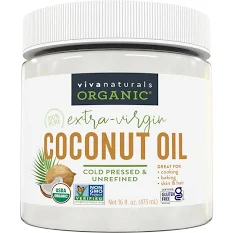Understanding and Managing Spring Itching in the Vietnamese Phu Quoc Ridgeback Dog
- Phu Quoc Ridgeback Kennel Club

- Apr 21, 2025
- 3 min read

The Vietnamese Phu Quoc Ridgeback is a unique and hardy breed known for its intelligence, agility, and distinctive ridge of hair along its back. However, like many dogs, this breed can suffer from seasonal allergies, particularly during spring when environmental allergens such as pollen, mold, and dust mites are at their peak. Spring itching, also known as seasonal allergic dermatitis, can cause significant discomfort for these dogs, leading to excessive scratching, licking, and skin irritation.
This article explores the causes of spring itching in Phu Quoc Ridgebacks, symptoms to watch for, and effective topical and homeopathic remedies to provide relief.
Causes of Seasonal Itching in Phu Quoc Ridgebacks
Seasonal itching in dogs is primarily triggered by environmental allergens. Common causes include:
1. Pollen – Trees, grasses, and weeds release pollen in spring, which can stick to a dog’s coat and skin, leading to allergic reactions.
2. Mold Spores – Damp spring weather encourages mold growth, which can irritate a dog’s skin and respiratory system.
3. Dust Mites – These microscopic pests thrive in warm, humid conditions and can exacerbate skin allergies.
4. Insect Bites – Fleas, mosquitoes, and other insects become more active in spring, and their bites can cause intense itching.
Symptoms of Seasonal Itching
- Excessive scratching, licking, or chewing (especially paws, belly, and ears)
- Red, inflamed skin
- Hot spots (localized areas of severe irritation)
- Dry, flaky skin or dandruff
- Hair loss in affected areas
- Ear infections (shaking head, foul odor)

Topical Treatments for Itch Relief
When managing seasonal itching, topical treatments can provide immediate relief by soothing the skin and reducing inflammation. Here are some of the most effective options:
1. Oatmeal and Aloe Vera shampoos
- Benefits: Oatmeal is a natural anti-inflammatory that calms irritated skin, while aloe vera provides cooling relief and promotes healing.
- Recommended Products:
- Earthbath Oatmeal & Aloe Shampoo
- Veterinary Formula Clinical Care Antiseptic & Antifungal Shampo
2. Coconut Oil
-Benefits: Coconut oil has antimicrobial and moisturizing properties, helping to reduce dryness and prevent infections from excessive scratching.
-Application: Apply a thin layer directly to affected areas or mix with a few drops of lavender oil for added soothing effects.
3. Calendula Cream
-Benefits: Calendula is a natural antifungal and anti-inflammatory herb that promotes skin healing.
- Application: Use a calendula-infused balm or make a diluted tea rinse (cooled) to apply to itchy spots.
4. Apple Cider Vinegar Rinse
- Benefits: Diluted apple cider vinegar (ACV) helps restore the skin’s pH balance and acts as a natural antiseptic.
- Application: Mix 1 part ACV with 3 parts water and spray on the dog’s coat (avoid open wounds).
5. CBD Balms
- Benefits: CBD has anti-inflammatory properties that can reduce itching and discomfort.
- Recommended Products:
- Honest Paws CBD Balm for Dogs
- Pet Releaf CBD Topical Stick
Homeopathic and Natural Remedies
For dog owners seeking holistic approaches, homeopathic remedies can help manage allergies from within while supporting overall immune health.
1. Quercetin (Nature’s Benadryl)
- Benefits: A natural flavonoid with antihistamine and anti-inflammatory effects.
- Dosage: 5–10 mg per pound of body weight, twice daily (consult a vet before use).
2. Omega-3 Fatty Acids (Fish Oil)
- Benefits: Reduces inflammation and improves skin barrier function.
- Dosage: 20–30 mg of EPA/DHA per pound of body weight daily.
3. Local Raw Honey
- Benefits: Helps desensitize the immune system to local pollen allergens.
- Dosage: ½ teaspoon per 20 lbs of body weight daily.
4. Nettle Leaf Extract
- Benefits: Acts as a natural antihistamine.
- Dosage: Brew nettle tea, cool, and add to food or apply topically.
5. Homeopathic Sulphur or Apis Mellifica
- Benefits:
- Sulphur 30C – Helps with hot, itchy skin.
- Apis Mellifica 30C – Useful for swollen, red skin (e.g., from insect bites).
- Dosage: 1–2 pellets twice daily until symptoms improve.
6. Supplements and Probiotics
-Benefits: Reduces skin inflammation, desensitize the immune system (Sea kelp, Probios)
-Dosage: Take as instructed
Preventive Measures
- Regular Bathing: Rinse your dog after outdoor activities to remove allergens.
- Clean Living Space: Wash bedding frequently and use HEPA air filters. Use airtight lids for food bins.
- Dietary Support: Feed a high-quality, hypoallergenic diet rich in omega-3s.
- Flea Prevention: Use natural flea repellents like neem oil or vet-approved preventatives.
Final Thoughts
Spring itching in Vietnamese Phu Quoc Ridgebacks can be managed effectively with a combination of topical treatments, homeopathic remedies, and preventive care. By understanding the triggers and using natural solutions like oatmeal baths, coconut oil, quercetin, and omega-3 supplements, owners can help their dogs enjoy a comfortable, itch-free season. Always consult a veterinarian before starting new treatments, especially if symptoms persist or worsen.
With the right approach, your Phu Quoc Ridgeback can thrive—even during allergy season!
**Disclaimer**: This article is for informational purposes only and is not a substitute for professional veterinary advice. Always consult a veterinarian before trying new treatments.
















Comments